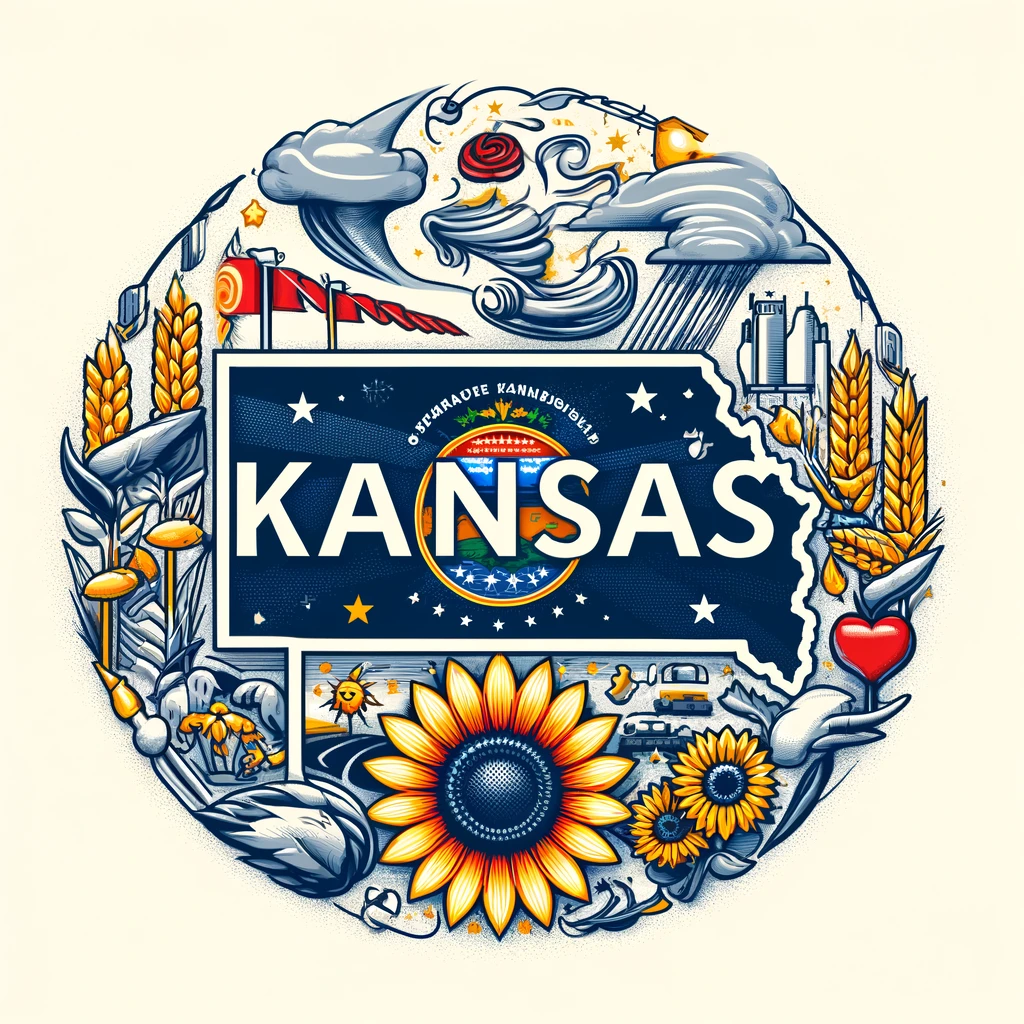KU CRNA School
Did you know 83% of Kansas hospitals use only CRNAs for anesthesia. This stats show how important CRNAs are in health care, especially in the State of Kansas.
The Kansas University CRNA School is a top pick for learning getting your DNP and pursuing your career in Anesthesia.
It’s one of only two CRNA Schools in Kansas. Students get a great education, learn from skilled teachers, and find good jobs after finishing and passing their boards.
This article will cover everything current about the Kansas University CRNA School, which includes requirments for admission, how to apply, and things to do in Kansas.
If you live in Kansas or are thinking of moving there, this program can jumpstart your career in nurse anesthesia.
Key Takeaways:
- The Kansas University CRNA School is highly regarded for providing top-notch nurse anesthesia education.
- CRNAs play a crucial role in anesthesia care, with 70% of providers in Kansas City being CRNAs.
- 83% of Kansas hospitals rely exclusively on CRNAs for anesthesia care.
- The program at Kansas University is fully accredited and prepares graduates for the national certification examination.
- Graduates of the program have excellent job prospects and competitive salaries in the field of nurse anesthesia.
Important Dates and Information
| Program Length | 36 Months |
| Application Deadline | July |
| Degree Offered | Doctor of Nurse Anesthesia Practice (DNAP) |
| Class Size | 36 |
| Cost | Instate: $60,689.77 Out of State: $82,290.87 |
| Contact | (913) 588-6612 Email: na@kumc.edu |
| Website | University of Kansas CRNA School |
| School Location | University of Kansas Medical Center Nurse Anesthesia Education Mailstop 2020 3901 Rainbow Blvd Kansas City, KS 66160 |

Curriculum and Faculty
The program at Kansas University is 36 months of intense clinical training and diadactic work.
Inthe Kansas CRNA program you’ll get to learn both in the classroom and directly in hospitals, diving into the latest anesthesia techniques.
This hands-on experience will prep you to confidently administer anesthesia to any patient.
The instructors are top-notch experts in anesthesia and teach full-time at Kansas University.
Plus, CRNAs from The University of Kansas Hospital also pitch in, along with other knowledgeable professionals from various hospitals. They’re all here to help you learn and succeed!
At Kansas University, the focus is on becoming a great CRNA. Students learn how to do research and be leaders. The teachers and program make sure students get a great education. They prepare students well for their CRNA careers.
Admission Requirements
To get into the Kansas University CRNA program, there are some rules to follow.
First, you must be a registered nurse.
And you need two years of nursing work after getting your license. This should cover a year of full-time work in an intensive-care unit (ICU).
You should be skilled with important ICU tasks. These include watching a patient’s vital signs closely, using ventilators, reading EKGs, and keeping track of medicine use. Knowing these well helps you in the CRNA program.
Next, you have to pass some courses before starting the program. These classes are in chemistry, microbiology, the body’s structure, how it works, and certain math. You should do pretty well in these courses. Especially in how the body works, where you need at least a B.
You’ll also need letters of recommendation. These should be from bosses or senior nurses and doctors. They should talk about how good you are at your job and how much you love helping people.
Getting a special nurse certificate (CCRN) is not a must, but it’s a good idea. Being part of groups that help people, either at work or as a volunteer, can make your application look better. It shows you’re serious about healthcare.
Licensing and Certification
After finishing the Kansas University CRNA program, students can get national certification. This is from the National Board of Certification and Recertification of Nurse Anesthetists. Getting certified helps become a well-known and trusted CRNA. It’s good for working in any state.
Program graduates can also get a state license where they want to work. Check the American Association of Nurse Anesthetists website for each state’s rules. This makes sure grads are ready to get their state license.
Those entering the Kansas University CRNA program must already have RN licenses for Kansas, Missouri, Nebraska, and Oklahoma. The license should not have any limits. This makes sure all students can do their best in the program and in their jobs later on.

Continuing Education Requirements
Once you’re a CRNA with a license and certification, keep learning about the latest in your field. Continuing education helps you keep your skills sharp and your care high-quality.
The AANA has many ways to help you learn more. They offer classes, meetings, and online resources.
These learning opportunities talk about new ways to give anesthesia, keeping patients safe, new medicines, and acting right in your job. By always learning, you can be a top CRNA. You’ll give your patients the best care. Conclusion:
Getting your CRNA license and certification is a big step for Kansas University CRNA graduates. It proves you’re skilled and opens many job opportunities in the U.S. Keeping up with education and meeting state license rules helps you do well as a CRNA. You can be a real force in the nurse anesthesia field.
Application Process
Applying for the Kansas University CRNA program is simple. It’s an online process. Here is what you need to know about applying:
- Application Period: You can apply from March 15 to July 15. This is your chance to send in your application online.
- Early Decision Option: If you live in Kansas and qualify, you can apply early. The chance is open from March 15 to May 15. It means they will look at your application sooner.
- Admission Decisions and Personal Interviews: In the fall, they decide who they want to interview. It’s very important to go to this interview if you are invited. This is how they pick the people who will join.
- Acceptance Notification: You’ll find out in November if you got in. Getting this news will be very exciting for you.
- Program Start Date: The class starts after Memorial Day. It gives you time to get ready for the new journey.
Stick to the steps and dates mentioned. This will make sure your Kansas University CRNA application goes smoothly. Good luck!
Conclusion
The Kansas University CRNA School is a top school for nurse anesthesia. It gets students ready for a fun job as nurse anesthetists.
The program has high quality. It is fully approved by the Council on Accreditation. The teachers are from the KU School of Health Professions. They have a lot of experience. All this happens in Kansas City, KS.
There’s a big need for CRNAs. 83% of Kansas hospitals only use CRNAs for anesthesia. This is a good thing for students. Jobs for CRNAs are growing fast. The outlook is excellent from 2019 to 2029. Students from Kansas University can help meet this need. They can help a lot in healthcare.
CRNAs also make good money. The average yearly pay is over $180,000. This makes it a great job financially. Living in Kansas City is also very nice. There are lots of fun things to do and see there.
FAQ
What is the Kansas University CRNA School?
The Kansas University CRNA School is special. It’s one of two nurse anesthesia programs in Kansas. This program is very important for anesthesia care in Kansas, mostly in rural places.
What percentage of anesthesia providers in Kansas City are CRNAs?
About 70% of those who give anesthesia care in Kansas City are CRNAs.
What percentage of Kansas hospitals rely exclusively on CRNAs for anesthesia care?
83% of Kansas hospitals use only CRNAs for anesthesia care.
Is the Kansas University CRNA program accredited?
Yes, the program at Kansas University is fully accredited. The Council on Accreditation of Nurse Anesthesia Educational Programs has accredited it.
What certification can graduates of the Kansas University CRNA program obtain?
Graduates can take the national certification exam. It’s given by the National Board of Certification and Recertification of Nurse Anesthetists. Passing this exam lets them become CRNAs.
Where is the Kansas University nurse anesthesia program located?
It’s at the KU School of Health Professions. This is on the KU Medical Center’s campus in Kansas City, KS.
If you are looking to find other CRNA Schools you can find programs in other areas of the country at CRNA Schools by State.
What does the nurse anesthesia curriculum at Kansas University include?
The program lasts for 36 months. It teaches both in class and in clinics. Students learn all about anesthesia techniques deeply.
They focus on using what they learn in the real world.
Who are the faculty members at Kansas University’s nurse anesthesia program?
The teachers are full-time CRNAs. They have a lot of experience. The University of Kansas Hospital also has anesthesiologists and CRNAs teaching. Adjunct faculty help too, from other places, to teach in clinics.
What are the admission requirements for the Kansas University CRNA program?
You need to be a registered nurse with two years of work. One year must be in an ICU. You also need courses in science and a bachelor’s degree.
Some other things are needed, like references.
How can graduates of the Kansas University CRNA program become licensed?
Graduates first take the national certification exam. They must pass to get their CRNA credential. Then they can apply for a job where they want to work.
Is the nurse anesthesia program at Kansas University accredited?
Yes, it is. The Council on Accreditation of Nurse Anesthesia Educational Programs has accredited it. Also, the Higher Learning Commission and the University of Kansas have both given their approval.
How can I apply for the Kansas University CRNA program?
You can apply online. The application time is from March 15 to July 15. If you live in Kansas, you can apply early. This special application is from March 15 to May 15.
Admissions are made in the fall. If you are invited for an interview, you must go. Acceptance news comes in November.
What is the job outlook and salary for CRNAs?
The future looks great for CRNAs. Jobs are growing at a nice rate. The pay is over $180,000 a year. Graduates from Kansas University do very well in this field.

